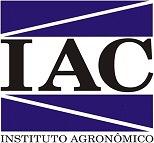Black spot (Cercosporidium personatum) severity assessment in peanut genotypes
DOI:
https://doi.org/10.52755/sas.v2iedesp1.145Keywords:
Arachis hypogaea L.., Improvement Program, ProductivityAbstract
The present work aimed to evaluate the black spot severity in different peanut genotypes. The experiment was conducted in the agricultural area of "‹"‹a cooperative member of the Casul Cooperative, located in the western region of the state, in the municipality of Iacri-SP, in the agricultural year 2020/21, being implemented on December 16, 2020, purposely a week after date of planting of the commercial crop, whose objective is to encourage the migration of pests and diseases from peanut crops with phenological stages more advanced to the initial ones. The experimental design used was in randomized blocks, with four replications. The treatments were twenty genotypes, with seventeen strains: 1253 OL, 1876 OL, 19-2673, 2010 OL, 2055 OL, 2101 OL, 2110 OL, 2133 OL, 2250 OL, 2914 OL, 2994 OL, 3088 OL, 3226 OL, 3259 OL, 3308 OL, 3309 OL and 3311 OL, a cultivar: BRS 423 OL, (developed by the EMBRAPA PMA), a cultivar BRS 151 L7 (developed by EMBRAPA Algodão) and Granoleico (Argentina produced by El Carmen). The plots were constituted by two lines of four meters in length, with spacing of 0.90 m and useful area for evaluation of 7.2 m2 per plot. Based on the present field study, it is concluded that the genotypes showed a significant difference regarding the severity of black spot. The 2673 OL and 3088 OL genotypes showed possible resistance genes to the pathogen and are promising to be used in new hybridizations in order to obtain a cultivar resistant and/or tolerant to black spot severity.
Downloads

Downloads
Published
How to Cite
Issue
Section
License
Copyright (c) 2021 Natã fernandes Bonatto Pantolfi, André Samir Uchelli, Jair Heuert, Maxuel Fellipe Nunes Xavier, Renan Paio, Taís de Moraes Falleiro Suassuna

This work is licensed under a Creative Commons Attribution-NonCommercial-ShareAlike 4.0 International License.
Autores concordam com os seguintes termos:
a) Os autores mantêm os direitos autorais e concedem à revista o direito de primeira publicação, com o trabalho simultaneamente licenciado sob a LicençaAttribution-NonCommercial-ShareAlike 4.0 International, que permite o compartilhamento do trabalho com reconhecimento da autoria e publicação inicial na Revista SAS. A licença permite o uso, a distribuição e a reprodução irrestrita, em qualquer meio, desde que devidamente citada a fonte. Essa licença permite também que outros remixem, adaptem e criem a partir do seu trabalho para fins não comerciais, desde que atribuam a você o devido crédito e que licenciem as novas criações sob termos idênticos.
b) Não cabe aos autores compensação financeira a qualquer título, por artigos ou resenhas publicados na South American Sciences.
c) Os conceitos expressos nos artigos publicados na South American Sciences são de inteira responsabilidade de seus autores.








